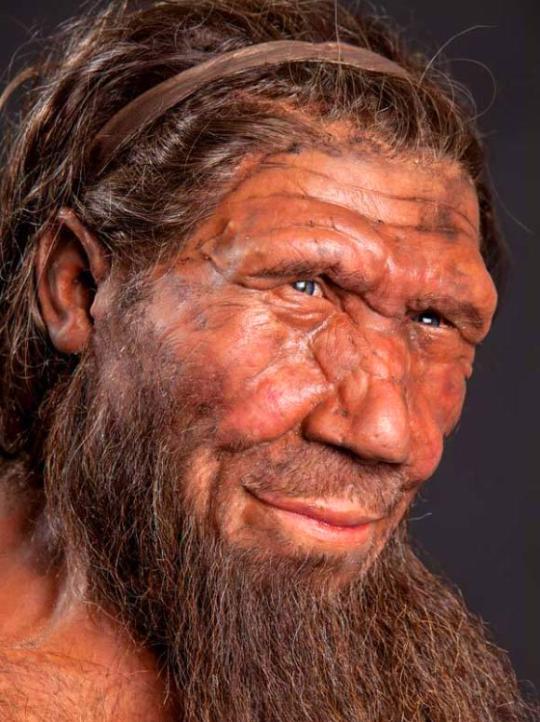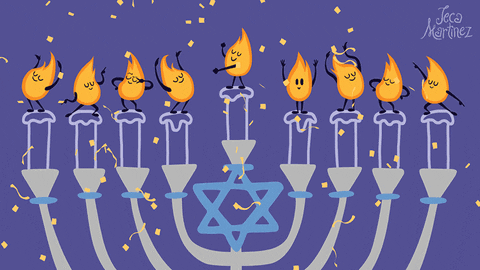Don't wanna be here? Send us removal request.
Text
Earth has housed many species throughout the ages, 3 of which changed the course of human kind. I'll say this again for those who do not understand. Human is species not a race so when people especially those of the White Race refer to humans as Race it isn't Human is a species. We are Homosapien Black/African people, Caucasians aka the White Race including all those with White skin are human hybrids. What do you mean human hybrid well its simple back before our ancestors were building civilizations they migrated out of Africa. This wouldn't be the first migration out of Africa this would be one of many. Before Homosapiens were Homo Erectus our closest cousins, but there was another group a group that wasn't formed in Africa like Homo Erectus or Sapiens that would be the Neanderthals. The Neanderthals lived in more favorable climates where their pasty milk white skin wouldn't burn from the sun. Unlike Erectus or Sapien who developed melanin as a natural protection from the sun's uv thus why their birth place being Africa is perfect unlike the Neanderthals whose birth took place outside of Africa in colder regions either in the caves or continent of Europe. This means they'd be more suited for the cold having longer hair, thinner noises and pale skin. You're probably asking what does all this mean or have to do with Caucasians being Hybrid humans. Well hold on I'm getting there I must explain next what a Hybrid species is also how melanin can be erased in 3 generations. I also want to add in here that Caucasians are not Albinos or come from Albinos, Albinism is a rare genetic trait that happens often.


Congenital absence of pigment in the skin and hair (which are white) and the eyes (which are usually pink). The cause of albinism is a defect in one of several genes that produce or distribute melanin, the pigment that gives skin, eyes, and hair their coloring. The defect may result in the absence of melanin production or a reduced amount of melanin production. To date as many as seven forms of oculocutaneous albinism are now recognized – OCA1, OCA2, OCA3, OCA4, OCA5, OCA6 and OCA7. Some are further divided into subtypes. OCA1, or tyrosinase-related albinism, results from a genetic defect in an enzyme called tyrosinase.

People with albinism have a reduced amount of melanin, or no melanin at all. This can affect their colouring and their eyesight. People with albinism often have white or very light blonde hair, although some have brown or ginger hair. The exact colour depends on how much melanin their body produces. For most types of OCA, both parents must carry an albinism gene to have a child with albinism. Parents may have normal pigmentation but still carry the gene. When both parents carry the gene, and neither parent has albinism, there is a 25% chance at each pregnancy that the baby will be born with albinism. OCA 2 is the most common type of albinism and is especially frequent among African Americans and Africans. The estimated frequency in African Americans is 1 case per 10,000 population, while in whites, the frequency is 1 case per 36,000 population. The overall frequency is 1 case per 15,000 population across all races.


In biology, a hybrid is the offspring resulting from combining the qualities of two organisms of different breeds, varieties, species or genera through sexual reproduction. Often times the hybrid species takes characteristics from either the father or mother. Males from these hybrid species are in all instances sterile, but the Female isn't.

Thus a Homosapien male can continously mate with a Homosapien Neanderthal Hybrid resulting in new genetics triats between the both of them. The first generations of males will be sterile but those between the Homosapien and Hybrid Hollywood Neanderthal may not be sterile those same offspring could continue to mate with others like themselves including their second generation. That generation would be known Caucasians, unlike the previous generations this generation would be able to preproduce offspring while still caring the DNA of their Neanderthal great grand and grandparents well as their hybrid Neanderthal Homosapien parents. It would take 3 generations of them to go back to being Pasty milk white pale skinned as they would be trapped in Europe. If a Black Man and White Woman or White Man and Black Woman have a child the child will be mixed or Biracial if said child goes out into the world and have a child with someone white their child will have more Caucasian feature from the hair, to the nose to the eyes but if they child does the opposite the child will have more Black features. It's the third generation where the offspring matters, because if their offspring went even farther from the last only producing with an White person they would have successfully erased any known Black DNA from their family line and history even if the great grandparent were Black. The opposite can be said if the offspring went back with someone Black now the white gene could be eradicated although after many generations of offspring resulting either back to Black or White you can hold within your DNA a fraction of those who came before you. Caucasians aren't fully human but rather Hybrid Humans Caucasians are also the only ones with a known gene called Atavism or the Throwback Gene. The reappearance of a trait that had been lost during evolution. Our genes do not determine who we are, but with atavism, they can sometimes serve as reminders of our evolutionary past. Atavism happens between two White people the Black gene that is lying dormant with for over tens of generations resurface causing them to have more Black features even if said white woman hasn't been with a Black Man it's a genetic trait that can resurface at any point in time. Exposing the fact they're Hybrids of ancient ancestors this is also why Caucasians have the highest percentage of any race to having Neanderthal genes vs Africans having more Homosapien genes. In all Caucasians do not come from Albinos but rather inbreeding between Homosapien and Neanderthal which created Neanderthal Homosapien Hybrid they kept to one another over the course of their time together which led to 3 generations of them forming a new species of humans. One that took the traits of their Neanderthal and Homosapien parents futuring it with their children whipping out the melanin at the same time finally the Caucasian were born. When you lay with these hybrid humans having children with them you are damaging your bloodline.
37 notes
·
View notes
Text
instagram
A chilling truth often overlooked in history books: The Arab slave trade was a brutal and inhumane system that lasted for centuries. One of the most horrific practices involved young African boys, aged 8 to 12, who were subjected to castration to prevent reproduction. This barbaric act was often fatal, with an estimated 60% of boys succumbing to the procedure due to blood loss and infection.
Our ancestors endured unimaginable suffering, their bodies mutilated and their spirits broken, all so that a foreign religion could spread. This dark chapter in history is a testament to the resilience of the African people and a stark reminder of the atrocities committed in the name of power and greed.
Let’s honor their sacrifice by educating ourselves and others about this often-silenced history. By understanding the past, we can work towards a more just and equitable future.
Reference:
“The Arab Slave Trade” by Ronald Segal
83 notes
·
View notes
Photo



Bruce Lee as Chen Zhen Fist of Fury (1972) dir. Lo Wei
17K notes
·
View notes
Text
72 notes
·
View notes
Text
Political Ponerology
Psychopaths have played a disproportionate role in the development of civilization, because they are hard-wired to lie, kill, cheat, steal, torture, manipulate, and generally inflict great suffering on other humans without feeling any remorse, in order to establish their own sense of security through domination. When you understand the true nature of psychopathic influence, that it is conscienceless, emotionless, selfish, cold and calculating, and devoid of any moral or ethical standards, you are horrified, but at the same time everything suddenly begins to makes sense. Our society is ever more soulless because the people who lead it and who set the example are soulless - they literally have no conscience.
Andrzej Lobaczewski
75 notes
·
View notes
Text
PAUL NEWMAN MASTERCLASS: US-ISRAEL HYPOCRISY
Washington has long applied double standards when it comes to the rule of law, particularly in relation to Israel.
In this 1983 video, actor Paul Newman brings up another hard-to-argue-against example. The U.S. downplayed Israel’s downing of Libyan-Arab Airline Flight 114 in 1973, but caused an uproar when the Soviet Union downed Korean Airlines Flight 007 in 1983. The incident was used to justify astronomical US defence spending.
Well, forward wind to today and not a lot has changed. While demanding Russia’s president is prosecuted for war crimes in Ukraine, the US defends Israel’s war on Gaza, despite the ICJ warning of plausible genocide.
Watch Paul Newman get a round of applause on the Phil Donahue show, as he highlights Washington’s selective moral outrage.
Washington #DoubleStandards #RuleOfLaw #Israel #Libya #Korea
61 notes
·
View notes
Text

—Did you know that Juneteenth is also celebrated in a part of Mexico? Nacimiento Mexico was once home to thousands who escaped slavery in the US. As many as 10,000 slaves followed a clandestine Southern Underground Railroad to Mexico. —To date, many Black Mexicans from the Texas area retrace a portion of the same route their African American ancestors followed in 1850 when they escaped slavery. —Descendants of slaves who escaped across the southern border observe Texas’s emancipation holiday with their own unique traditions in the village of Nacimiento. —Slave hunters would patrol the southern border for escapees, led by the Texas Rangers but the Mexican army would be there waiting for them (the slave hunters) to turn them away.
x
7K notes
·
View notes
Text
Learn about Nakba





📚🇵🇸 While there is no shortage of books on the #Nakba, the huge choice available can easily overwhelm those who want to understand more about the ethnic cleansing of Palestine, and the near-total destruction of Palestinian society in 1948. With that in mind, Middle East Eye suggests five books to understand the issue. The list is by no means exhaustive but offers a casual reader a strong foundation in understanding how the Nakba came about and its continued impact on Palestinians
✍️ by Shafik Mandhai
20 notes
·
View notes
Text

Researching African American Ancestors
Due to the long history of slavery in the United States, family history research can be challenging for many African Americans.
Census takers rarely recorded the names of enslaved people and seldom listed family members together. Enslaved people were often subjected to forced name changes, family separation, and other injustices that continue to cause challenges when finding people from the past.
But some strategies can help.
Getting started
Download our guide to African American family history.
Gather information:
Family Bibles
Journals, diaries, and letters
Photographs
Obituaries and newspaper clippings
Birth, marriage, and death certificates
Family group sheets, pedigree charts, and books of remembrance
Interview your family members and ask whether they have any records. Take note of names, dates, and places.
Start a family tree and add anything you've discovered.
Search family trees by clicking the Search tab and selecting Public Member Trees. To narrow your search results, add information one field at a time until you get results you can use.
Follow the strategies below.

Tracing your family backward
In the United States, federal censuses are taken every 10 years. Trace your ancestors backward in censuses starting with your immediate family, recording each detail you find.
Enslaved people were not usually named in censuses. Slavery was abolished in 1865, so the first census that included the names of most African Americans was the 1870 U.S. Federal Census.
If you can trace your ancestor back to the 1870 census, you've got a good start. The next step is to find out whether they appeared in the 1860 U.S. Federal Census.
In 1860, about 10% of African Americans were free. If your ancestor was free in 1860, they should be listed in the census. If you can't find them in the 1860 census, they were likely among the 90% of African Americans still enslaved.
Look too for your ancestor in the Mortality Schedules. These are indexes of people who died during the 12 months before the census date. Mortality schedules are available for the 1850–1880 censuses. These schedules often included the names of both freedmen and enslaved people, but sometimes the names of enslaved people were excluded from the index.
Trace your ancestors backward until you can't find them anymore. At that point, it's time to find the name of the last enslaver.

Finding the last enslaver
To find pre-1870 records that include your African American ancestor, you may need to find records for the enslaver.
If your ancestor has an uncommon last name, search censuses for white people with the same surname as your ancestor in the same area. When you find them, make a list; these are possible enslavers. Only about 15% of formerly enslaved people took the enslaver's surname. Start with the 1860 U.S. Federal Census.
Search the Freedmen's Bureau for your ancestor's name. The Bureau of Refugees, Freedmen, and Abandoned Lands was established in 1865 to help newly freed African Americans transition to life outside slavery. The names of former enslavers were often included in labor contracts, sharecropping agreements, and marriage records. Read more about the Freedmen's Bureau Records & Freedman's Bank Records.
Search the U.S. Colored Troops Military Service Records and the Civil War Pension Index. First, identify an ancestor in the Colored Troops Military Service Records, then use the information you find to locate the same person in the Civil War Pension Index, which often lists the names of enslavers.
Search the Freedman’s Bank Records. The Freedman's Savings and Trust was an institution chartered by Congress to benefit of newly-emancipated people. This publication reproduces fifty-five volumes of signatures and personal identification data of thousands of depositors who maintained accounts with the bank. These records usually show account numbers, dates of application, and the depositor's name, age, complexion, place of birth, place raised, occupation, spouse, children, family members' names, remarks, and signature. These registers of deposits sometimes included the name of a formerly enslaved person, their family members, and the former enslaver.
Search the Wills and probate records. Enslavers’ wills and probate records often list enslaved people by name.
Search U.S. Interviews with Former Slaves, 1936-1939. This database contains more than 2,300 first-person accounts of slavery and 500 black-and-white photographs of people who were formerly enslaved. It’s searchable by any word, so references to specific names can be found easily. Enslavers were often named in these narratives.

Searching slave schedules
If you know the enslaver's name and your ancestor's likely year of birth, try searching for the enslaver in the 1850 slave schedules and 1860 slave schedules. For help searching or understanding slave schedules, see Searching Slave Schedules.
More resources
The African American history page on Ancestry contains information about our DNA test and links to search databases.
The African American Historical Record Collection features interviews with people who were formerly enslaved, slave manifests, slave emancipation records, and more.
AfriGeneas provides resources for African-related genealogy with a vision of finding and documenting the last slaveholder and the first African in each family.
Cyndi's List has an index of genealogy sites about African American research.
The National Archives contain both African American research and links to resources.
The Hutchins Center for African & African American Research is a Harvard research center that supports research on the history and culture of people of African descent and provides a forum for collaboration.



11 notes
·
View notes
Text

I can’t wait to hear how the bees are also Hamas.
21K notes
·
View notes
Photo







1.The Promise of Heaven The most important aspect of Christianity for the enslaved was the promise of heaven — a promise made by plantation owners. This idea preached the notion that for all the suffering that is done in the physical world, your soul will be preserved and you will experience a hardship-free spiritual life, according to Slave Resistance, A Caribbean Study. What this did for enslaved Afrakan people was give them hope for the future. Converted enslaved people’s belief in heaven allowed some to passively resist their plantation owners and focus on the afterlife. With that belief, all of the beatings and lashings meant nothing because in heaven the enslaved person would be rewarded and the master would be punished.
2. Constant work. The vigorous, constant plantation work assigned by owners left the enslaved people hardly any time for themselves, and that included religious activities, according to christianitytoday.com. Some plantation owners required the enslaved to work even on Sunday, an intentional move to break them away from their religious regimen and softening them over time to accept whatever religion was presented to them by the plantation owners.
3. Blocked communication. Plantation owners separated the enslaved people who spoke the same tribal language so they could not worship together and could be taught Christianity at the same time, according to an article titled The Inconceivable State of African-American Christianity on christianitytoday.com.
4. Separated Families! Moving family members from one another broke down the spirit of the enslaved, as they believed wholeheartedly in worshipping together, according to academia.edu in a study on the role of religion in Africa. With their family units broken, their African beliefs were broken, too, making them more willing to accepting another religion.
5. Demonstration of power! When Africans were captured and brought to America by the Europeans, they often attributed the Europeans’ power to the power of the Europeans’ God. Therefore, it was often easy for some enslaved Africans to begin to worship the victorious Christian God in place of their own gods.
6. Catholic conversions! When Africans were captured and brought to America by the Europeans, they often attributed the Europeans’ power to the power of the Europeans’ God. Therefore, it was often easy for some enslaved Africans to begin to worship the victorious Christian God in place of their own gods.
7. Mixing of religious practices! Symbols and objects, such as crosses, were conflated with charms carried by Africans to ward off evil spirits. Christ was interpreted as a healer similar to the priests of Africa, according to PBS’ Slavery and the Making of America. In the New World, fusions of African spirituality and Christianity led to distinct new practices among enslaved populations, including voodoo or vodun in Haiti and Spanish Louisiana. Although African religious influences were also important among Northern Afrakan people, exposure to Old World religions was more intense in the South, where the density of the Afrakan population was greater.
8. Missionary work in the West Indies! Missionaries — from the Moravians, the Baptists and the Methodists — all engaged in the process of Christianization in the West Indies, according to an article by Jeffrey K. Padgett titled The Christianization of Slaves in the West Indies. By the middle of the 18th century, Moravian chapels and mission houses were in populated areas of many of the British-controlled islands. Missionaries argued to planters that the enslaved needed religion and that planters also would benefit from the conversion.
9. Social control! In the Caribbean colonies of Cuba and Saint-Domingue, religion was taught to enslaved Africans as a means of social control more than as a means to edify their souls, according to an article titled Slave Religion in Central and South America. Especially in the colonies’ early days, while the plantations were small and the enslaved population was not huge, plantation owners used religion to teach obedience. In Cuba and Brazil, Catholic saints were often equated with gods from Africa — generating familiarity for the enslaved. http://m.youtube.com/watch?v=Hu0z6zyc2J8
1K notes
·
View notes
Photo

Let’s dive into the human psyche Think about this, before ANY religious text were created our ancestors were communicating thru various markings and cuts. The question is, did the authors of the bible conspire against these African tribes because they could not understand their means of communication and ultimately shunned it to demonize our original culture…Pardon me if I went to deep… THE WAKE UP IS REAL
https://www.youtube.com/watch?v=Hu0z6zyc2J8
CHRISTIANITY AND ISLAM IS ANTI AFRICAN
137 notes
·
View notes
Text

DID JESUS USE MAGIC AND SORCERY?
According to the Talmud, the source of power and the authority by which Jesus performed miracles was from Satan. Rabbi Daniel Asor claims: “Jesus was indeed a false prophet as he acted only by using powers of sorcery.” He also claims that Jesus “was himself the embodiment of Satanism.”

Claims like those of Rabbi Asor are based on a myth of the Sages that Jesus learned the arts of sorcery in Egypt.

22 notes
·
View notes





